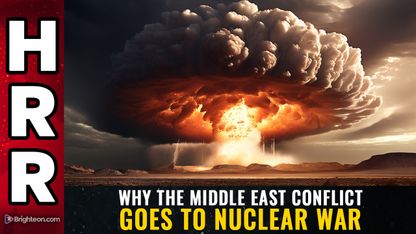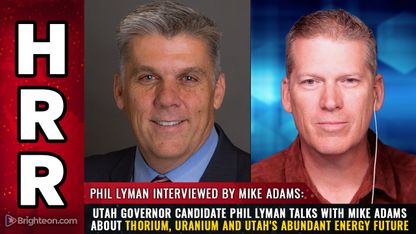
Advertisement
(BigGovernment.news) As the 2012 tragedy at Benghazi remains part of public discourse, would-be Diplomatic Security agents are asking whether it’s safe to work for the State Department.
AMI Newswire has learned that prospective security agents want to know whether the State Department will give agents the training and support they need in order to work in dangerous locales, multiple sources said.
“This is an important question for any employer in this line of work, but it’s front and center when applying to State Department,” one career security agent said. “They don’t have the greatest reputation for supporting those of us in the field.”
The reputation stems most recently from the 2012 attack on Benghazi, when security failures led to the deaths of four Americans, including Ambassador Christopher Stevens. The attacks spawned a number of inquiries, including a congressional select committee investigation led by Rep. Trey Gowdy (R-SC). The committee, which formed in 2014, recently released its final report, and soon will disband.
Concerns surrounding the State Department’s Diplomatic Security (DS) long predate Benghazi, one security agent said.
In 2004, when private contractors linked up with DS agents in Iraq, the contractors were greeted like rescuing cavalry, the agent said.
“The regional security officer met with us and said: ‘we’re glad you’re here, because we don’t have the skill set.’ Our people did,” said Eric Parker, a former Blackwater contractor and currently a protective security specialist.

In years past, imparting the skill set did not seem to be a priority with Foggy Bottom during training, a former DS agent said.
“The PT test was a joke,” said the former DS agent, referring to physical training. “Part of the test was a timed run. People started the test walking because they knew it was a participation-only event. They couldn’t fail unless they died during the test.”
AMI Newswire attempted several times over the course of 48 hours to reach the State Department for comment. Although a spokesperson responded to an initial inquiry, the spokesperson did not respond to followup contacts.
The department’s website, though, tells potential recruits what to expect when working diplomatic security. Security work is “exciting,” the website reads, referring readers to a page containing profiles of two women agents.
One of the agents, Wendy Bashnan, wrote in her profile that, while serving abroad, she learned to scuba dive and got to see the pyramids in Egypt. “There have been many exciting assignments, such as protecting the Israeli team during the Atlanta Olympics,” Bashnan wrote.
Excitement seems to be a consistent leitmotif from the State Department when publicizing DS assignments.
In December 2011 – nine months prior to the fatal attack on Americans in Benghazi – the State Department’s employee magazine featured an article portraying the outpost as an exhilarating danger zone and casting Stevens, the ambassador, as an “intrepid” expeditionary leader who ventured headlong into insurrection.
In a layout featuring ink-spatter artwork depicting chaos, the State magazine article – “Mission to a Revolution,” by DS agent Mario Montoya – depicts Stevens and others slipping into Benghazi via Malta on board a Greek cargo ship. The group had arrived earlier in Malta – from Libya – aboard a catamaran.
As related by Montoya, the twin-hulled vessel that carried the group to Malta was not so much a ferry as a rescue ship: “Her passengers included American diplomats, who had hurriedly evacuated after conflict erupted in Libya and their safety and security could no longer be assured in Tripoli.”
The group returned to Libya to set up an outpost in Benghazi, “the cradle of the revolution.” There, they found an unstable setting. Wrote Montoya: “The crackle of gunfire in the dark is not the sound a Bureau of Diplomatic Security agent longs to hear, but during the past six months in Benghazi, Libya, it was all too common as exuberant fighters celebrated the day’s revolutionary successes with rounds dispatched randomly into the night sky.”
Adventure and excitement notwithstanding, potential DS recruits told AMI they remain focused on physical security.
“People got killed in Benghazi,” said former job seeker Andrew Michaels, who considered applying for a DS position, but rejected the idea. “Those guys didn’t have support. Did the State Department learn from that? Has anything changed? I didn’t get a good answer.”
He also was concerned about training. “I wanted to know if the person next to me could step up when it gets bad.”
Michaels asked recruiters specifically about physical training while attending a job fair on June 28 at Fort Stewart Georgia, he said.
His buddy, who still is looking for security work, asked similar questions. “They told us it was all good,” said the buddy, who was satisfied with the answers and submitted an application. “They have standards.”
A number of the standards are listed on the State Department’s DS recruitment web page. Among other qualifications, the candidates must pass physical fitness tests “and be fit for strenuous physical exertion,” the site reads.
For example, female DS candidates aged 65 and older must complete two pushups within two minutes. At the other end of the age spectrum, males aged 20 must complete 42 pushups in the same allotted time. Varied standards also apply for sit-ups and the 1.5 mile run.
“Those standards are pathetic,” the career security agent said. “They fit into the entire culture of what went wrong at Benghazi. Is it safe to work in diplomatic security? You tell me.
“I hope Congress keeps it up,” the agent said. “I hope they investigate.”
If anyone does, it won’t be the House select committee.
“Our committee’s work is done,” Gowdy, the chairman, told reporters on July 8. “If you’re asking whether or not the investigation into Benghazi is over, that’s a question the folks in your line of work are better able to answer than mine.
“Our committee will cease to exist in the very near future. You won’t.”
By Susan Katz Keating, AMI Newswire
More:
- Ron Paul: Fake Benghazi Hearings Nothing But A ‘Grandstand For Political Points’
- Lessons In Corruption: Clinton Foundation-Backed College Now On Federal Watchlist
- The IRS Has STOLEN Millions From Americans Under ‘Structuring’ Law Without Evidence
BigGovernment.news is part of USA Features Media.
Submit a correction >>
This article may contain statements that reflect the opinion of the author
Advertisement
Advertisements
















